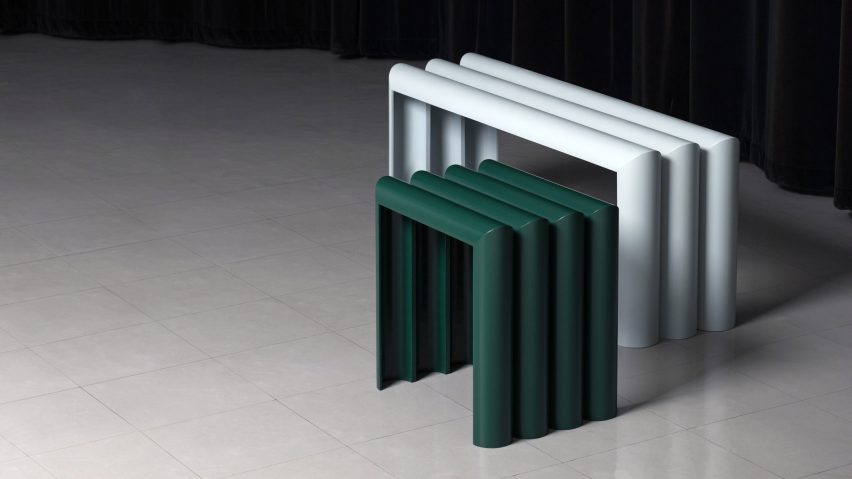
Phan Thao Dang transforms sewage pipes into benches and stools
California-based designer Phan Thao Dang has created a series of corrugated furniture objects from ABS plastic pipes conventionally used to carry waste sewage.
The Pipe Collection, which has been shortlisted for a Dezeen Award in furniture design, features a bench and a stool – both constructed from individual sewage pipes. It has a minimalist design, composed of pipes welded together to form hemispherical ridges.
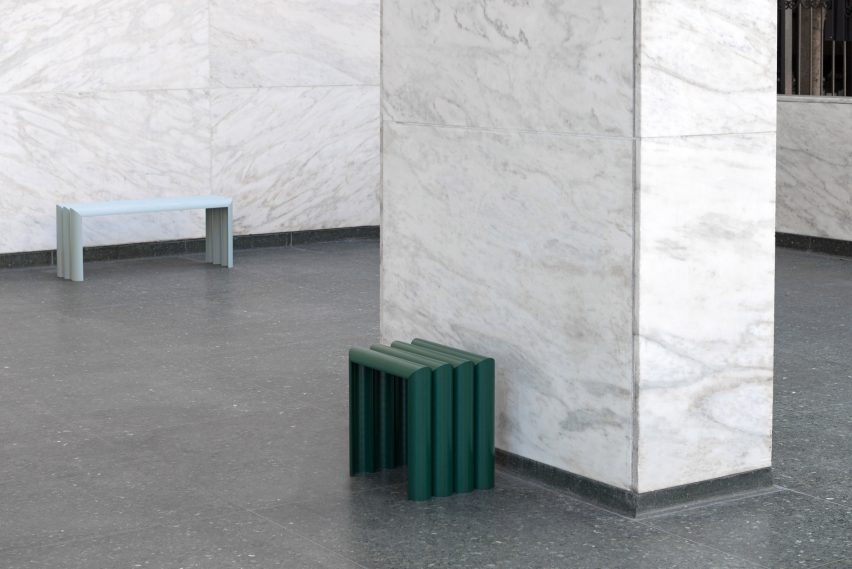
Dang was interested in the robust properties of sewage pipes, which are required to withstand extreme water pressure, temperature changes and chemical degradation from waste.
He wanted to create a series of furniture that would demonstrate these characteristics. "Unlike other moulded plastic furniture, the collection explores the handcrafted production of a stool and bench by transforming single sewage pipes into robust pieces of furniture," he told Dezeen.
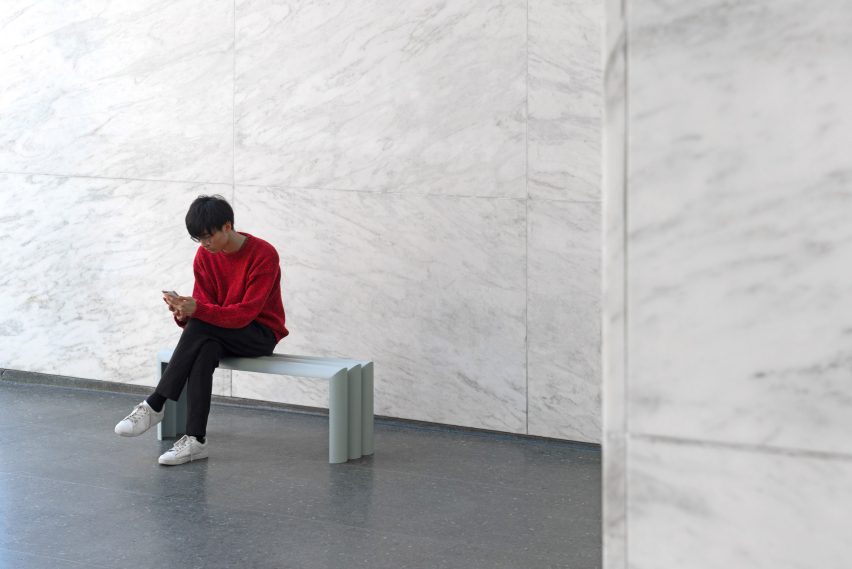
Dang created the bench and stool duo using standard ABS pipes – commonly used to carry drain or sewage waste – which he sourced from a local hardware store in San Francisco.
"ABS pipes are lightweight, have a higher impact strength, superior load capacity and excellent corrosion and abrasion resistance," he explained.
"Additionally, ABS pipes can be bonded instantly with a special compound and have a one-step process for connecting pipes."
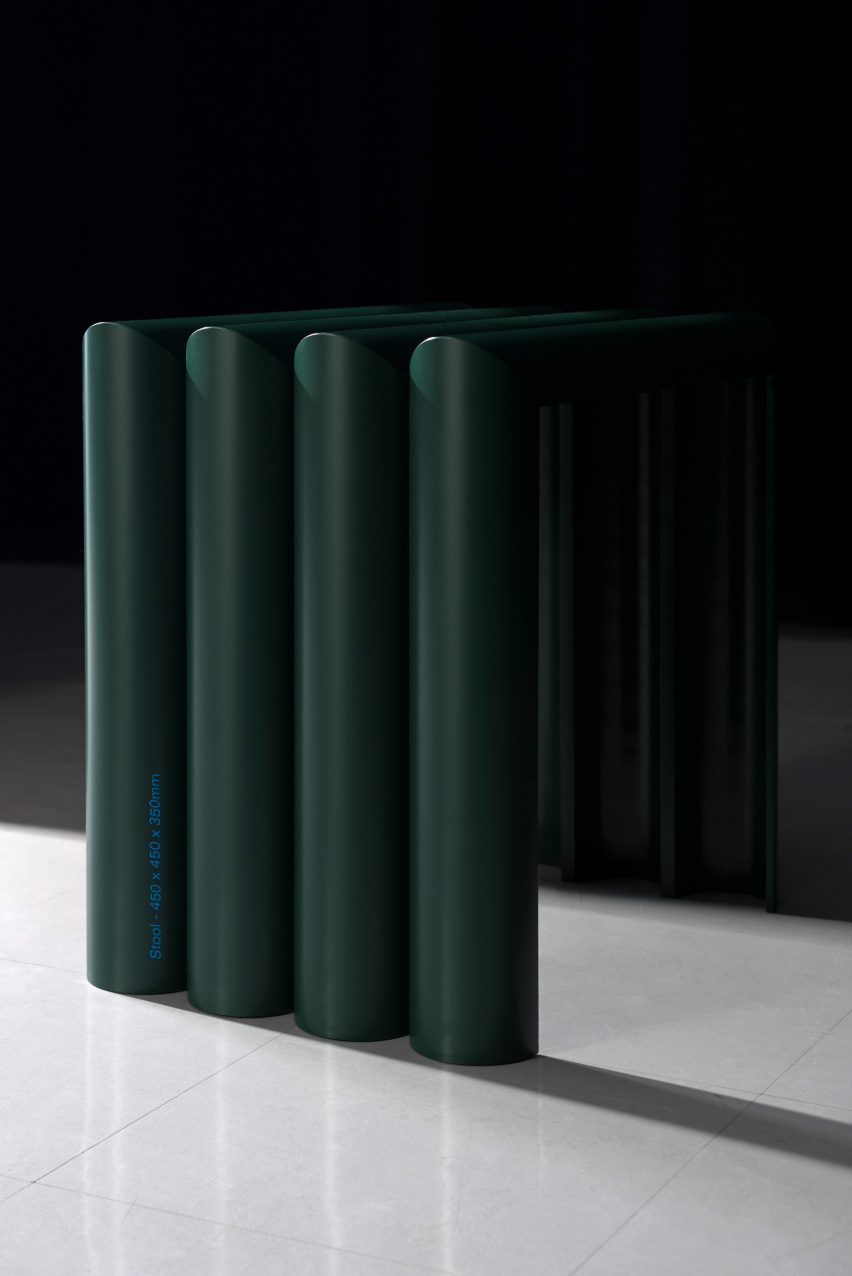
The bench was constructed using a four-metre-long pipe, while the stool is made from a three-metre-long pipe.
Dang began by dividing the pipes into smaller parts and cutting the ends at 45-degree angles, before filing them down to provide a flat surface to join the two parts of the pipe together to form a 90-degree structure.
A plastic welding compound was then applied to the two connecting parts to securely fasten the joint. These were then clamped together and left to set overnight.
"The two-part plastic welding compound connects the pipe sections permanently to form a strong connection," explained Dang.
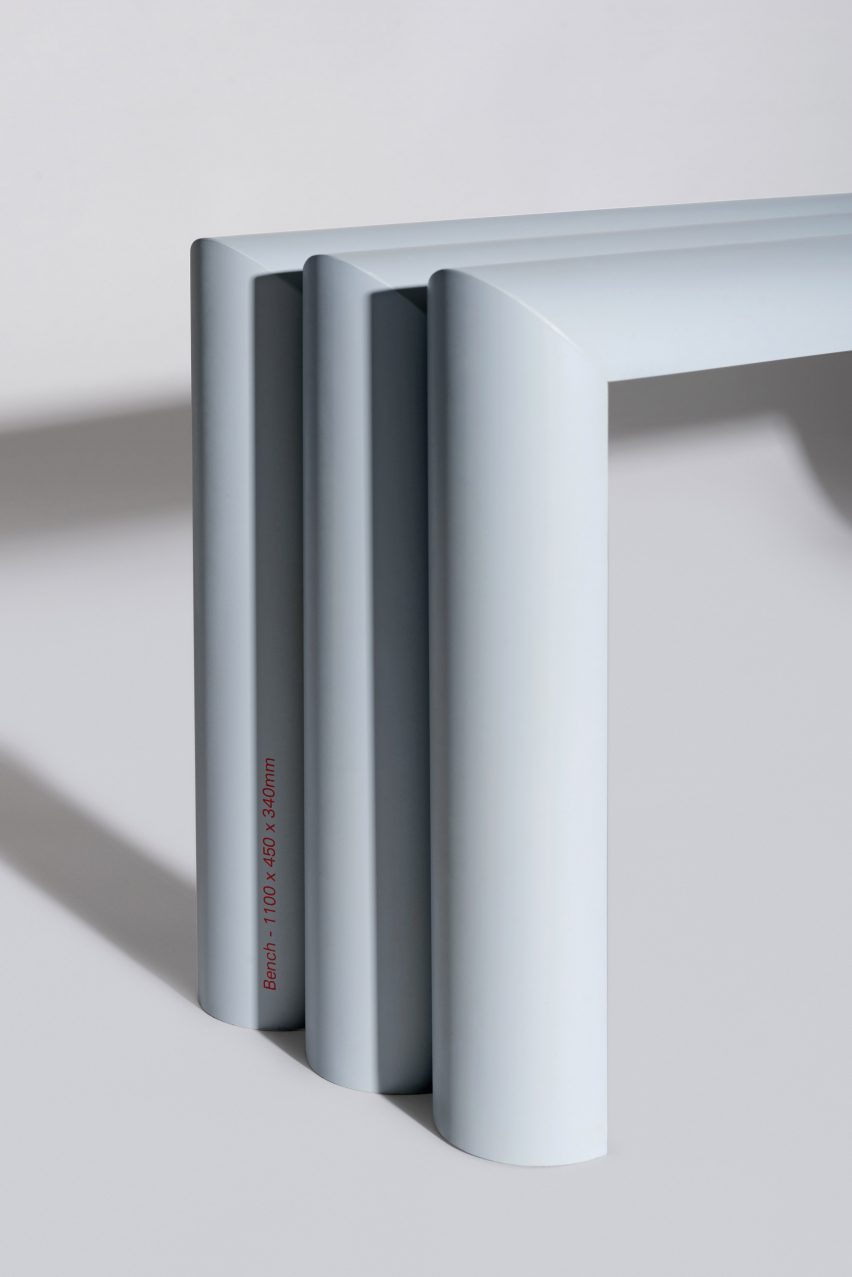
"Due to the arrangement and geometry as well as the properties of the material, the seating objects are structurally sound and lightweight," he continued.
To finish, he applied a coat of primer and painted the products with either dark green or white to create a protective layer between the product's surface and the natural elements.
"This step ensures longevity for the use outdoors and withstands UV degradation," he said.
Dang's other designs are equally minimal, from a coat hanger bent from a flat metal sheet to his Minimal Rail Desk made from only three parts.

